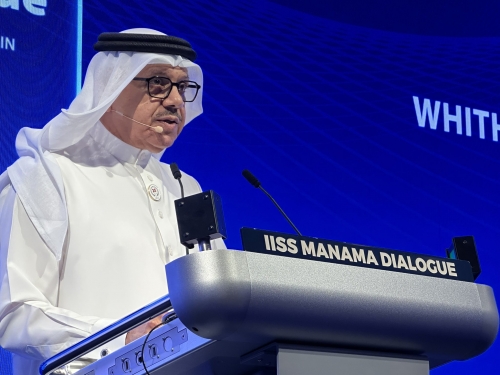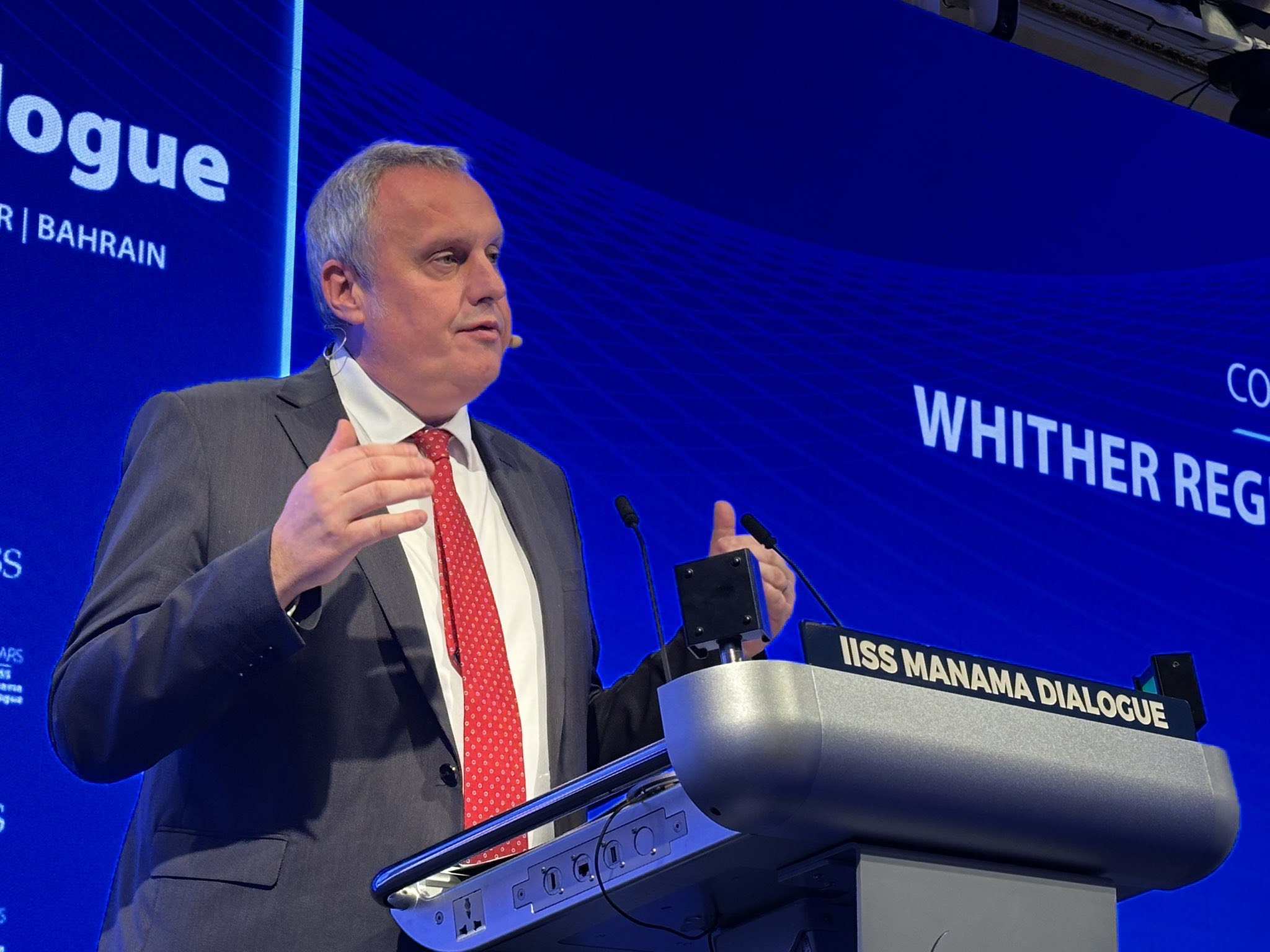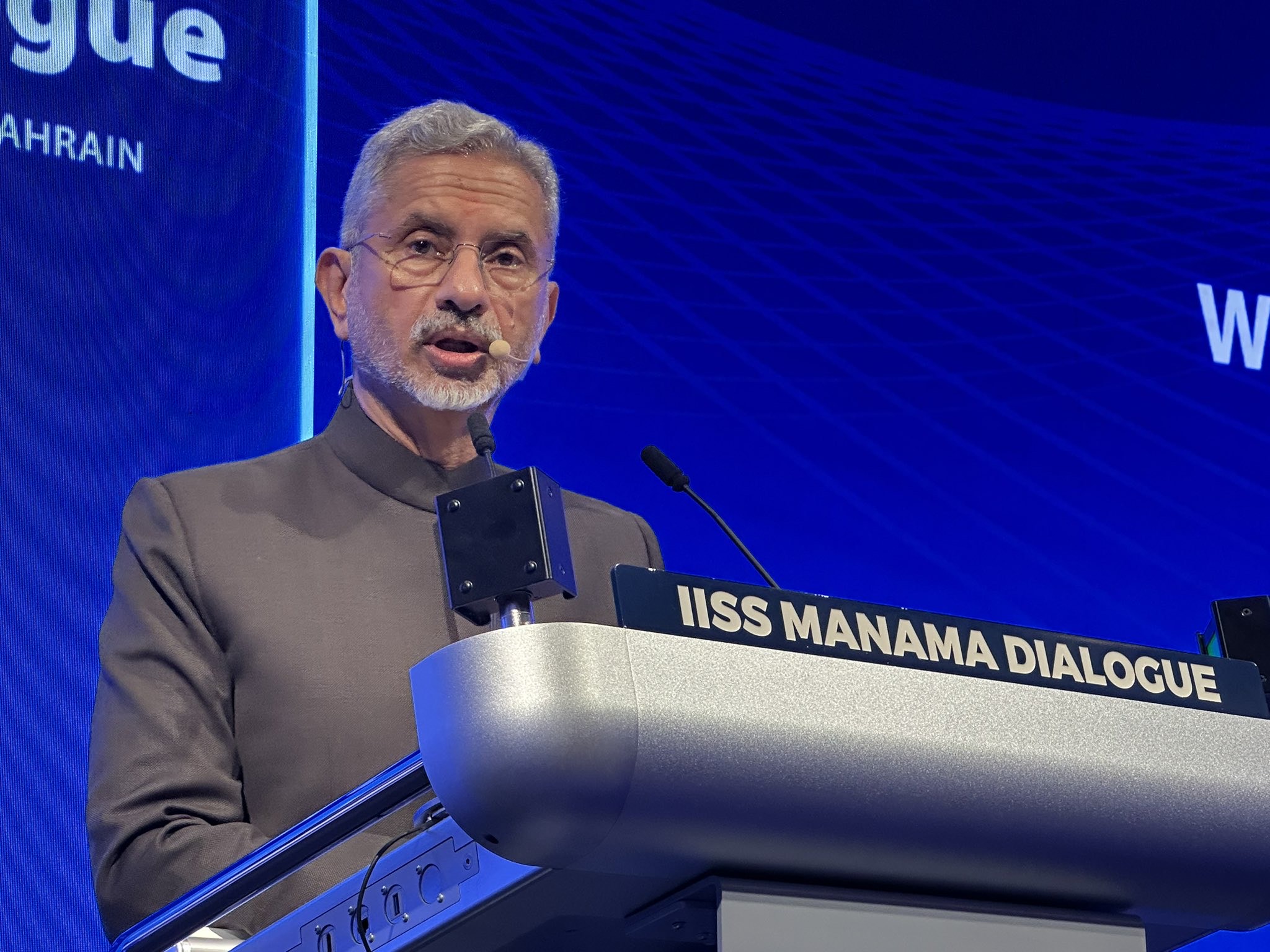FM Stresses Strategic Partnership at Manama Dialogue
TDT | Manama
Email: mail@newsofbahrain.com
At the Concluding Plenary Session of the Manama Dialogue titled “Whither Regional Strategic Cooperation,” India’s Foreign Minister S. Jaishankar emphasized the vital importance of the Middle East to India’s energy security, trade, and broader economic connectivity. Speaking on the region’s growing strategic significance, Jaishankar affirmed India’s commitment to strengthening ties and deepening cooperation with Middle Eastern nations.
“Whatever happens in the Middle East matters a lot,” Jaishankar remarked. “India is prepared to be more visible and present in this region to foster shared prosperity and cooperation.” He underscored India’s longstanding relationship with the region, calling it “not just a key energy partner, but a vital trade partner,” and highlighting the deep interdependence between India and the Gulf nations.
De-Risking the Global Economy
Addressing global challenges, Jaishankar drew attention to the fragility of international connectivity and called for stronger infrastructure and mechanisms to sustain the global economy. “Today a primary preoccupation is to de-risk the global economy. Global connectivity is very fragile and limited, and we are now focused on finding a new hard-wiring that can underpin the global economy,” he stated.
He cited the International Maritime and Energy Corridor (IMEC) as a significant initiative aimed at enhancing trade routes and ensuring economic resilience. The IMEC project seeks to connect key regions, including the Middle East, South Asia, and Europe, thereby strengthening energy and trade links across continents.
Regional Cooperation and Pragmatism
The session also featured insights from Czech Republic’s Tomáš Pojar and Bahrain’s Foreign Minister Dr. Abdullatif bin Rashid Al Zayani, who echoed Jaishankar’s emphasis on regional collaboration and adaptability. Both leaders highlighted the need for realistic and pragmatic approaches to address shared challenges.
Dr. Al Zayani underscored the value of flexible and focused frameworks like C-SIPA, stating, “We should remain adaptable, understanding that broad cooperation might not always be possible. The flexibility of smaller frameworks such as C-SIPA is very valuable – realistic, focused, and adaptable.” He also called for strategic cooperation on geopolitical and transnational issues, noting, “We should explore the potential for strategic cooperation across the region, both in terms of geopolitical issues and transnational challenges, to help find common answers to common issues.”
Tomáš Pojar emphasized the importance of humility and pragmatism in regional efforts, particularly in addressing humanitarian crises. “We must be more humble and pragmatic when it comes to brokering ceasefires and negotiating the delivery of humanitarian aid – the devil is in the details,” he said.
India’s Growing Engagement with the Middle East
India’s active engagement with the Middle East reflects its strategic intent to bolster partnerships for energy security, trade, and regional stability. Jaishankar’s remarks reaffirm India’s recognition of the Middle East’s pivotal role as a bridge between Asia, Europe, and Africa.
As the global economic landscape evolves, India seeks to position itself as a proactive partner in fostering regional stability and prosperity. The discussions at the Manama Dialogue underscored the shared understanding that strategic cooperation and pragmatic approaches are essential to navigating the complexities of an interconnected world.
Related Posts



